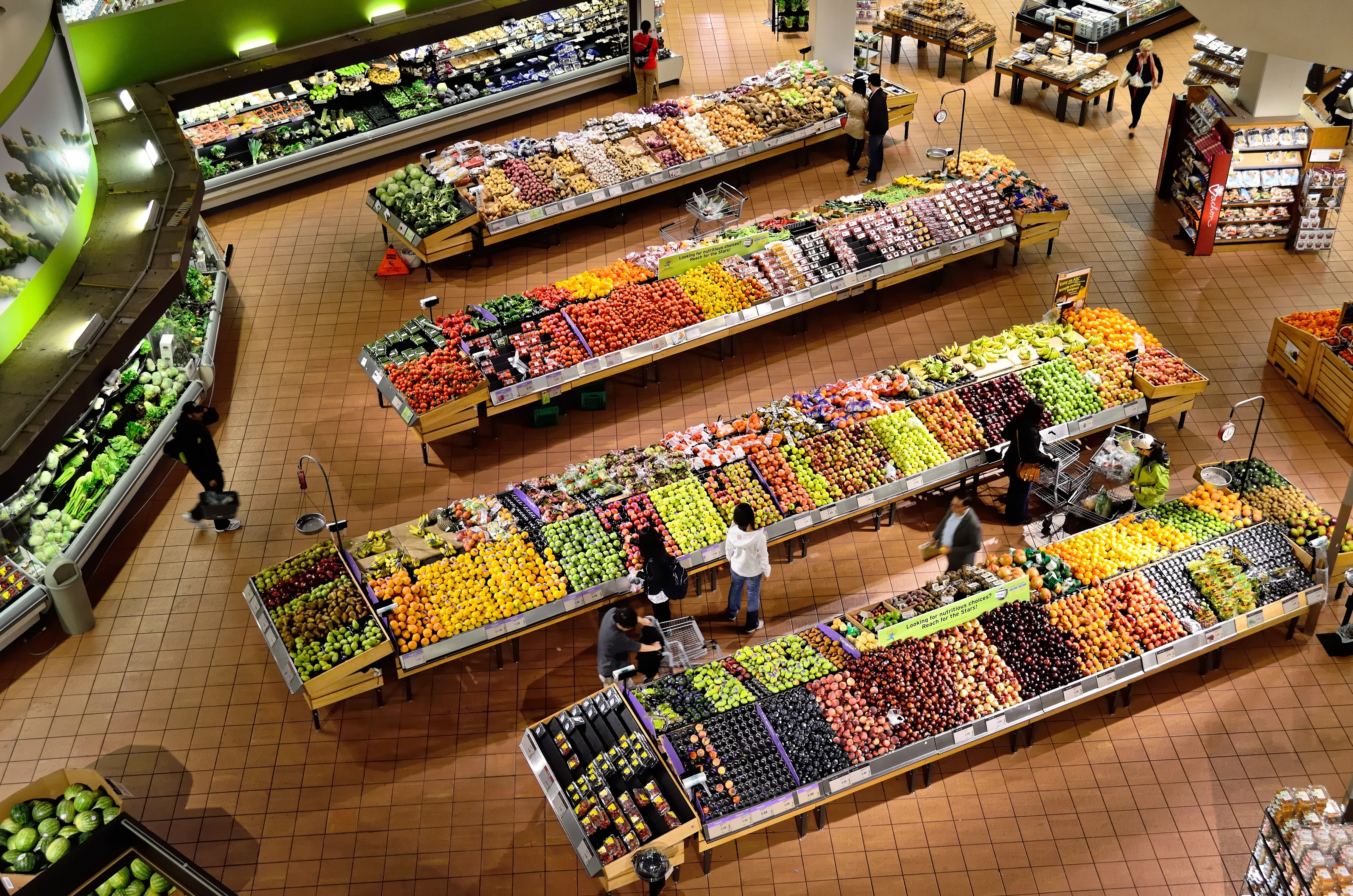People, planet, profits: managing the triple bottom line
 Fuit and vegetables section in a supermarket
Fuit and vegetables section in a supermarketMotivated by consumer demand and public opinion, companies are increasingly embracing the triple bottom line of people, the planet and profits.
During this year’s Investment Days – the FAO Investment Centre’s annual knowledge-sharing event – panellists from various private agribusiness companies, including farmers’ cooperatives, shared their approaches to social and environmental responsibility.
They also discussed how public institutions can support their efforts – from enforcing quality standards and educating consumers to lifting trade barriers for greater market access.
Gilles Mettetal, former Director of Agribusiness at the European Bank for Reconstruction and Development (EBRD), said that building trust with consumers is key.
“How can you sell a product if consumers don’t trust you? Companies realize that corporate social responsibility is not about ticking the box, but a way of behaving and moving forward,” he said.
Trust matters
For The Organic Factory, one of the leading crusher of organic oilseeds for the food and feed industry, success hinges on quality and trust throughout the entire supply chain, said Alexandre Kaufmann, the company’s Director of Finance/M&A.
“Food is more and more about emotion and trust, and consumers are ready to pay a premium if they can be absolutely sure that, in our case, the product is truly organic. That means we have to be honest with them and also extremely demanding with our suppliers,” he said.
Those thoughts were echoed by Eric Soubeiran, Global Nature and Climate Director of Danone, one of the world’s top multinational food corporations, who said you “need transparency throughout the supply chain.”
Danone’s approach to sustainability is deeply rooted in its business strategy. The company is committed to becoming a certified B Corporation, and has already achieved certification for a number of its business units, including Danone North America, currently the largest B Corp in the world.
“At Danone, we are working to transform our business as a force for good, creating value that will be shared with communities. We believe this is good for investors and for business, and good for society", he said.

Fruit processing plant in Chincha, south of Lima
Inclusive economy
Corporate social responsibility is also contributing to inclusive growth.
Stephen Muchiri is Executive Director of the East Africa Farmers Federation (EAFF) – a network of about 20 million farmers from 10 countries in East Africa and the Horn of Africa.
In addition to advocacy, EAFF has begun to focus on agro-entrepreneurship, running an e-platform that aggregates farmers virtually for everything from input markets to financial and extension services.
EAFF is also identifying opportunities for the public and private sectors to work with youth in agriculture and help them create viable business proposals that will attract investors.
Another panellist was Claudio Scarrozza, former CEO of the Europe division of CHS, a leading global agribusiness owned by farmers, ranchers and cooperatives throughout the United States.
CHS provides farmers with diverse support to grow their businesses– from boosting productivity and minimizing their environmental footprint through better agronomic practices to managing risks to maximize profits.
Social good
Private companies are finding innovative ways to promote social good.
Zhang Shaohua, Chairman of GF Securities Co., Ltd, the largest non-government-controlled investment bank in China, spoke of the bank’s efforts to give back to communities.
Their initiatives, for example, have helped lift rural families out of poverty, provide educational opportunities for under-privileged students and modernize village infrastructure, including installing irrigation systems and solar-powered lights.
The Italian coffee giant Lavazza is redefining its sustainability strategy based on the Sustainable Development Goals, according to Mario Cerutti, the company’s Chief Institutional Relations and Sustainability Officer.
Among its various projects, Lavazza is investing in young people.
It’s partnering with Save the Children, for example, to train young unemployed women and men in India to run coffee businesses, and is working with a food services specialist to train young refugees in Italy to do the same.
Learning from one another
Public institutions play an important role in promoting responsible private investment in food and agriculture.
“We don’t realize how much the public sector is influencing the private sector and helping change the way companies do business, in terms of labour, food safety and quality standards, the environment, and so on. The public and private sectors need to listen to one another, and FAO can play a big part in that,” Mettetal said.
“Social inclusion and environmental sustainability are important issues for food and agriculture and FAO can lead the way, but FAO also needs to think forward. Food is about emotions – bringing you back to childhood, connecting you to your country and culture and history, serving as a bridge between rural and urban. We need to think about food in all its dimensions,” he added.
